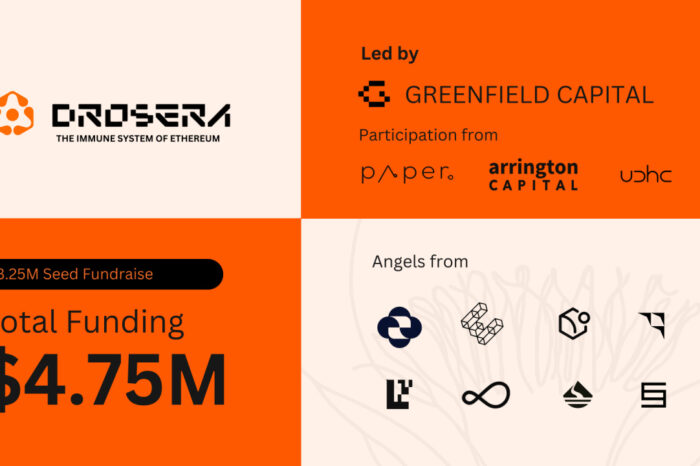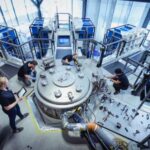UK clean energy startup First Light Fusion nears $61.9 funding as China takes lead in nuclear fusion race
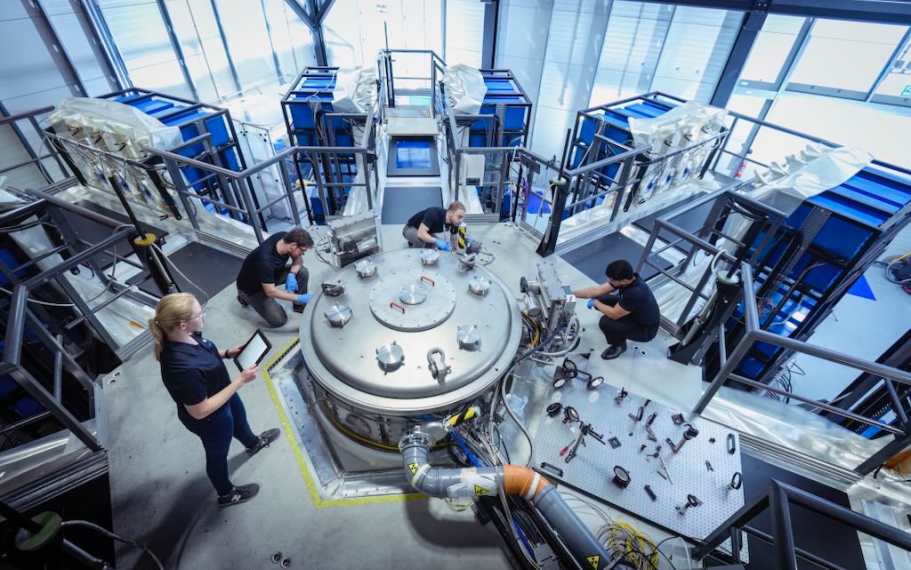
Oxford-based startup First Light Fusion is close to securing a $61.9 million (£60 million) funding deal, according to The Telegraph. This comes as China reportedly takes an unexpected lead in nuclear fusion technology. With this potential funding, First Light Fusion joins other clean energy startups like General Fusion, Commonwealth Fusion (CFS), and Jeff Bezos-backed Focused Energy in the race to generate limitless carbon-free energy through nuclear fusion.
First Light Fusion claims to have made significant progress with its unique projectile method, achieving a fusion reaction for the first time at its Kidlington lab. The company says this approach is simpler and more energy-efficient than competing methods, allowing it to advance at record speeds.
Founded in 2011 by Dr. Nicholas Hawker (CEO), First Light Fusion has already spent tens of millions of dollars advancing its technology. Like many fusion startups, it generates little to no revenue.
“In accounts filed last year, First Light Fusion said it had a “high level of confidence” it would secure a £60m injection of capital in early 2025, although its auditors said at the time there remained “significant doubt” over its ability to continue as a going concern,” the Telegraph reported.
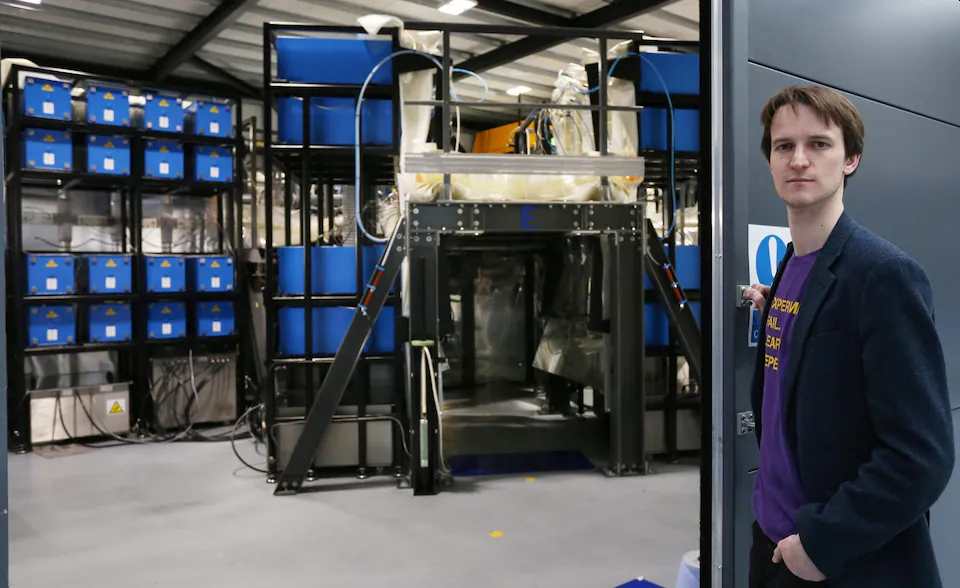
Dr Nick Hawker, co-founder and chief executive of First Light Fusion Credit: John Lawrence
Hawker stated that the company has already improved the process while awaiting regulatory validation. “It’s a fundamentally new way to go about fusion and it validates our simulations,” he said. “If we can make this core process work, the majority of the rest of the power plant can be built with existing technology. So potentially it’s a much faster trajectory towards commercial fusion.”
The company’s “projectile fusion” technology involves firing a small projectile at extremely high speeds into nuclear fuel using electromagnets, triggering a powerful reaction. This method eliminates the need for complex machinery or expensive lasers, potentially making its reactors cheaper and simpler than those of competitors.
Unlike traditional nuclear reactors that rely on fission—splitting atoms to release energy—fusion combines atoms to form a new element, releasing a large amount of energy. The process mirrors what happens in the sun, where hydrogen atoms are fused under immense gravitational pressure. Nuclear fusion produces no carbon, sulfur, or nitrogen emissions, offering significant advantages over current energy sources.
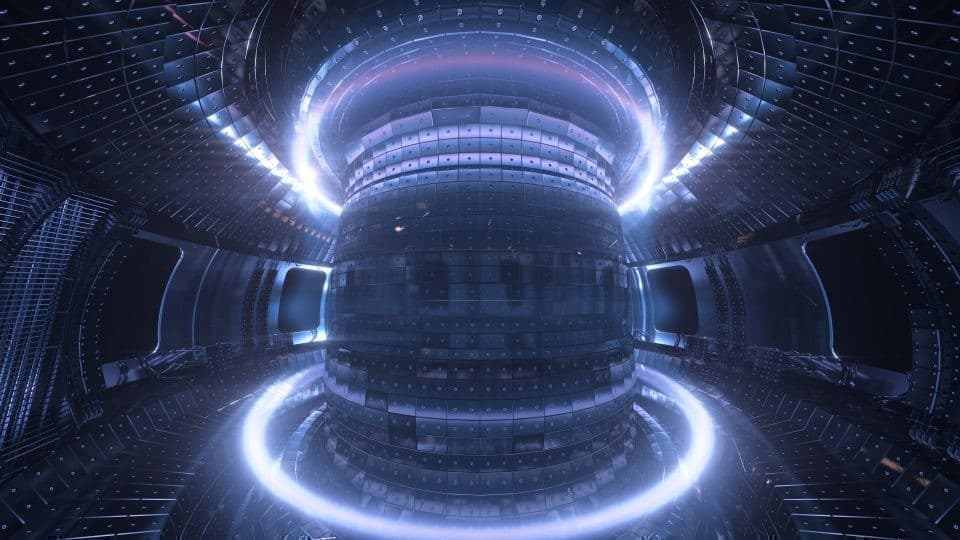
Theoretically, fusion could provide a cheap, clean, and nearly limitless source of energy. For example, just one tablespoon of liquid hydrogen fuel could produce the same energy as 28 tons of coal. Scientists are working to replicate these reactions on Earth using powerful electromagnets and extreme temperatures. A successful fusion reactor would offer a nearly infinite source of clean energy, often described as the “holy grail” for achieving net zero emissions.
First Light Fusion is in advanced discussions with current investors, including Chinese tech giant Tencent and London-listed IP Group, as well as potential new backers. Sources indicate that an announcement is imminent.
Earlier this month, Energy Secretary Ed Miliband announced that the UK government would allocate hundreds of millions of pounds to develop fusion reactors, including £410 million for various projects over the next two years.
Despite its promise, fusion technology has been a tough nut to crack, with researchers grappling with its commercial viability for decades. However, scientists are hopeful that advances in artificial intelligence will aid in stabilizing the fusion process.
Investors Pour Billions Into Nuclear Fusion Startups
While generative AI startups have attracted billions following ChatGPT’s success, investors are increasingly showing interest in nuclear fusion as the technology gains traction.
Major names like Jeff Bezos and Microsoft are backing fusion startups, betting on what could be a $10 trillion energy solution. Nuclear fusion startup companies like General Fusion, Commonwealth Fusion (CFS), and Focused Energy are among the leaders in this space. Renaissance Fusion, based in Grenoble, France, raised €15 million ($16.4 million) in seed funding in 2023 to advance its fusion technology.
Chinese EV maker Nio also made headlines with a $142 million investment for a 19.9% stake in Neo Fusion, a Chinese startup developing fusion technologies for commercial use.
Microsoft made a landmark move by signing a power purchase agreement with Helion Energy, a fusion startup, to buy electricity within the next five years. This marks the first time a fusion company has inked a deal to sell electricity.
China Leads The Nuclear Fusion Race
Western scientists are paying close attention to claims from China, where researchers reportedly achieved a significant breakthrough. The Chinese Academy of Sciences announced it sustained a fusion reaction for 1,066 seconds, more than doubling the previous record. Satellite images have also revealed a new laser fusion research facility, which uses powerful lasers to heat fuel and stimulate fusion reactions.
The Fusion Industry Association, a UK trade body, warned last year that Britain could lose its competitive edge in fusion technology to China if it failed to invest in the field. The association noted that the UK has “probably the greatest concentration of fusion skills on the planet”, particularly around Oxfordshire.
China’s Artificial Sun Breaks Fusion Record
Below is a video showcasing China’s “Artificial Sun,” the EAST tokamak, which set a new nuclear fusion record by maintaining plasma for 1,066 seconds. This breakthrough marks a significant step toward achieving clean, limitless energy.



